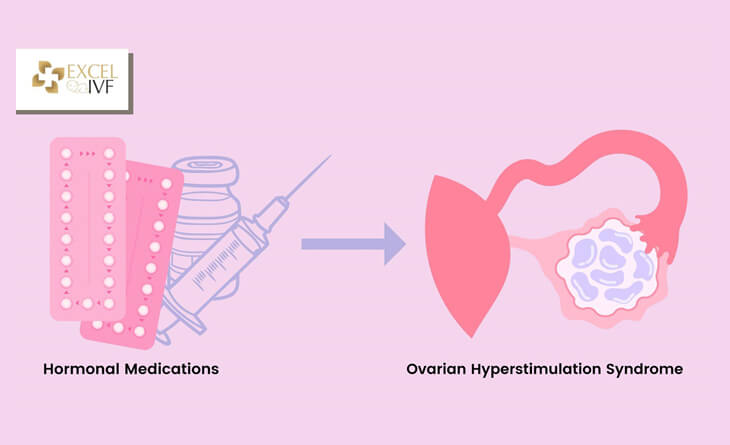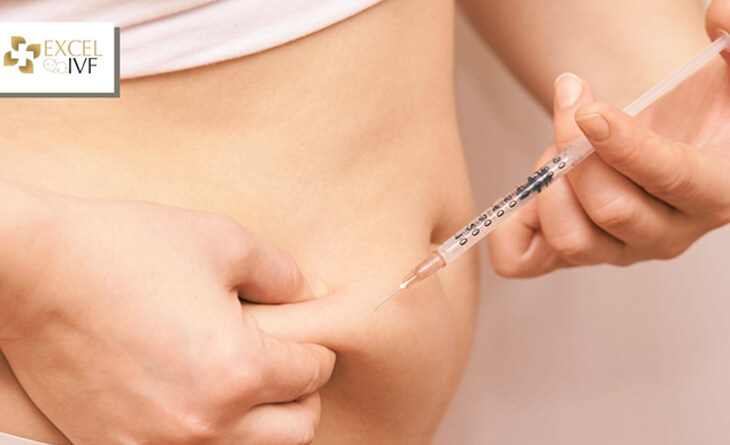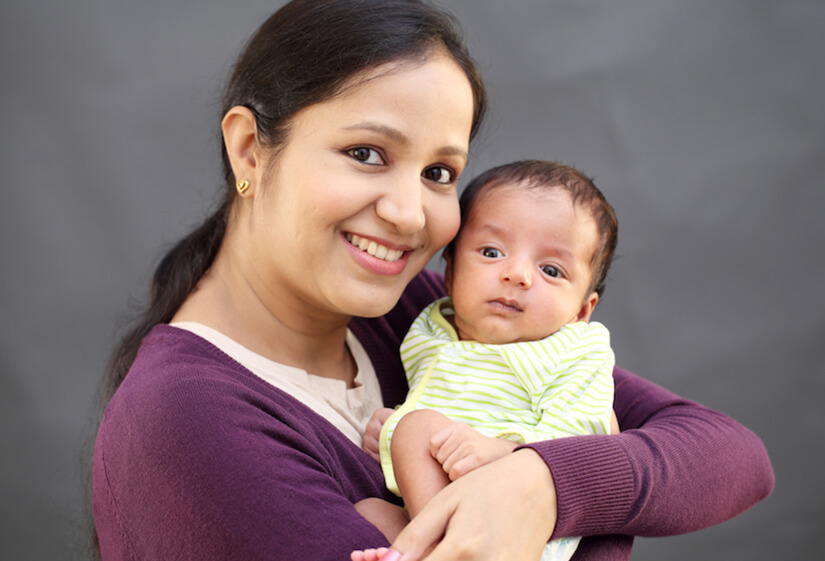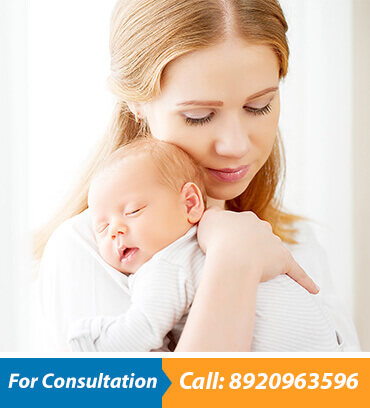What Are the Risks of IVF to Baby & Mother
IVF is a complex medical procedure that involves fertilizing eggs with sperm outside the body and then transferring the resulting embryos to the uterus. While IVF treatment has helped millions of couples have children, like any other medical procedure, it has potential risks for both the mother and baby that you must be aware of.
The point to be noted is that all these risks are mitigated if your treating IVF specialist is an expert in the field with ample experience and positive reviews to their credit.
Now let us look at these risks and complications of IVF. Being informed always helps to make the right choices, right?
Let us begin!
Risks of IVF Babies
1- Premature Birth
No matter how you conceive, either naturally or through IVF, there are chances of premature birth depending on several factors, like your age, overall health, and socioeconomic status.
Even after considering all those things, babies conceived through IVF are still more likely to be born prematurely than babies conceived naturally. The exact causes are not known; however, some studies indicate that a combination of factors like hormonal changes, multiple embryo transfer, male or female infertility, age of parents and increased medical management can increase the risks of IVF babies.
2- Low Birth Weight
Although IVF babies are as healthy as naturally conceived babies, they have low birth weight. According to the studies, the treatment itself does not cause any risks to babies; however, there are a few factors that can result in low birth weight.
Babies conceived through IVF treatment are more likely to be born prematurely due to multiple pregnancies, which can increase the risk of low birth weight. Also, the underlying fertility problems can increase the risk of low birth weight.
3- Birth Defects
There is no evidence that IVF causes congenital disabilities in babies. In fact, studies have shown that the rates of congenital disabilities in IVF babies are similar to those in babies conceived naturally.
However, the underlying maternal fertility problems, maternal age and lifestyle factors can increase the risk of IVF babies and congenital disabilities.
4- Neonatal Death
Neonatal death is a tragic event that can occur in any pregnancy, regardless of how the baby was conceived. However, no clear evidence suggests that IVF increases the risk of neonatal death.

Risks of IVF to Mother
While risks of IVF to the mother are generally low, it can cause short and long-term side effects. The common issues of IVF to mother are as follow:
1- Ovarian Hyperstimulation Syndrome (OHSS) :
Ovarian hyperstimulation syndrome (OHSS) is a potential complication of in vitro fertilization (IVF) that occurs when the ovaries overreact to the fertility drugs.
During the IVF treatment, your doctor will give you certain medications to stimulate your ovaries to produce more hormones. These hormones help the ovaries produce more eggs. However, sometimes, these drugs overstimulate the ovaries, which can cause them to swell and leak fluid into the body. This condition is known as ovarian hyperstimulation syndrome.
You may experience bloating, abdominal discomfort, and nausea in mild cases. However, there is rapid weight gain, shortness of breath, and decreased urination in severe cases.
OHSS is relatively uncommon, affecting about 1-2% of women who undergo IVF. However, if you are dealing with PCOS, you are at risk of ovarian hyperstimulation syndrome. To avoid this issue, visit the IVF centre in Delhi.
2- Multiple Pregnancy
In a natural pregnancy, only one embryo continues to grow and develop in the uterus until it is born as a baby. There are fewer chances when the embryo can split into two or more embryos, resulting in twins or triplets. So, there are rare chances of multiple pregnancies in natural conception.
However, in the IVF procedure, your doctor will transfer more than one embryo into the uterus to increase the success rate of the treatment. The number of embryos transferred during an IVF cycle depends on several factors, including your age, fertility history, and the quality and number of the embryos. Usually, A Grade embryos are transferred, so you have the highest chances of success.
According to a study, the multiple-birth rate for women aged 20 to 29 years is as high as 45.7%, while the multiple-birth rate for women aged 40 to 44 years is less than 25%, even when more than two embryos are transferred.
Multiple births can increase pregnancy-related issues like high blood pressure and diabetes, early labour and delivery, low birth weight, and congenital disabilities. The best IVF centre in Delhi can help to eliminate these issues by placing a single selected grade A embryo.
3- Ectopic Pregnancy
An ectopic pregnancy is a pregnancy that occurs outside of the uterus. It is most common in the fallopian tubes but can also occur in the ovaries, cervix, or abdomen. Ectopic pregnancies are a medical emergency and can be life-threatening. It can cause abnormalities or inflammation in the fallopian tube.
In the IVF procedure, your doctor carefully places the embryo in the uterus, so there are rare chances of ectopic pregnancy; however, there are chances that the embryos are transplanted outside the uterus, resulting in ectopic pregnancy.
An embryo cannot live outside the womb, and there is no way to keep the pregnancy going. Consult an experienced doctor at the IVF centre in Delhi to reduce the risks of ectopic pregnancy.
4- Miscarriage
Miscarriage is a common mishap that doesn’t depend on how you conceive. But why does this happen?
There are several reasons for this, and genetic problems are among the most common. These genetic issues prevent an embryo from growing normally. This happens randomly, and the risk of it happening again is low, which means you can be reassured that you have a good chance of having a healthy pregnancy in the future.
Another important factor is implantation difficulties that could lead to recurrent miscarriage. Various factors, including autoimmune disorders, thyroid problems, problems with the uterus lining, and anatomical abnormalities of the uterus, can cause implantation difficulties.
The third significant factor is age. Women who undergo IVF treatment are often older than women who conceive naturally, and older women are more likely to have miscarriages due to ageing eggs harbouring genetic abnormalities. For example, women between the ages of 35 and 45 have a 20-35% chance of miscarriage, and women over 45 can have up to a 50% chance of miscarriage.
5- Anesthesia Related Issues
During the egg retrieval and in some cases during embryo transfer procedure, your doctor puts you under general anesthesia so you do not feel pain or discomfort. Due to advancements in medical science, all the anesthetics are safe and don’t cause any side effects.
However, some women are sensitive to certain medications that can cause allergic reactions, nausea and vomiting, dizziness, headache, and low or high blood pressure. But don’t worry. These issues are short-term and manageable.
6- Injection-related Side Effects
The first stage of IVF treatment is ovulation, during which your doctor recommends hormonal injections to stimulate your ovary to produce more eggs. These injections are safe to use; however, some women can experience issues including:
- Injection-site reactions: These can include pain, redness, swelling, itching, and bruising at the injection site. They are usually mild and resolve on their own within a few days.
- Bleeding at injection site: Although bleeding at the site is uncommon, it can occur if you hit a blood vessel. If bleeding occurs at the injection site, apply pressure to the area until the bleeding ceases.
However, these side effects can be managed by following the doctor’s instructions at the best IVF centre in Delhi.

7- Other Issues
Other IVF-related issues may include:
- Bloating: Some women can experience bloating-like symptoms because these injections increase the hormonal level in the body.
- Infection: Although rare, infection can occur during the egg aspiration procedure because bacteria can enter the uterus with a non-sterile needle.
- Mood Swings: Frequent mood swings, such as feeling restless, irritated, or extremely weak, can indicate side effects from fertility or hormonal medication.
- Injury to organs like bladder or bowel.
- Intra abdominal bleeding: Due to injury to any blood carrying vessel of ovary or the body, there is a slight risk of bleeding inside the body.
The risk is negligible in experienced hands.
Take Away!
IVF is a safe and effective procedure for most couples. However, it is important to be aware of the risks associated with treatment, both for the mother and the baby. If you are considering IVF treatment, talk to your doctor about the risks and benefits of treatment.
If you are planning for an IVF treatment but don’t know where to start, schedule your consultation with Dr Rhythm Gupta, a fertility specialist in Delhi. She will assess your condition and explain the entire procedure along with possible risks so that you can make an informed decision.
Make the right choice and get on to your IVF journey with faith and confidence.




